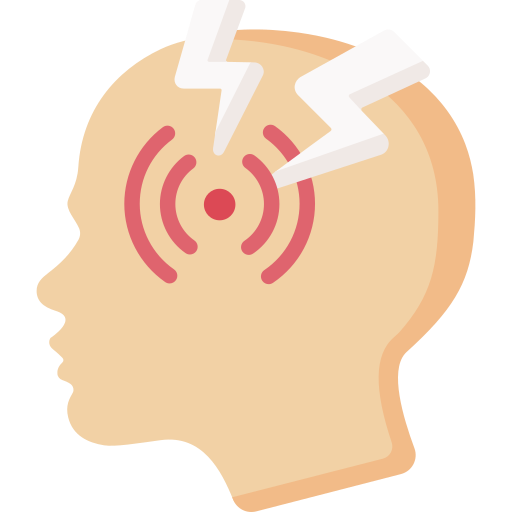SERUM FOOD ALLERGY TESTING
UNDERSTANDING FOOD ALLERGY TESTING
A food allergy is when your immune system reacts negatively to a specific food. The immune system's job is to protect your body from harmful substances, like bacteria and viruses. But in the case of a food allergy, it mistakenly identifies certain foods as dangerous and launches an attack.
Food allergies can be a challenging and sometimes life-altering condition that affects millions of people worldwide. Allergic reactions to certain foods can range from mild discomfort to severe, life-threatening situations. Fortunately, there are ways to identify and manage food allergies. One essential tool in this process is the food allergy test, which measures the presence of IgE antibodies in your body. In this article, we'll break down the science behind food allergy testing using IgE antibodies.
THE ROLE OF IGE ANTIBODIES
IgE (Immunoglobulin E) antibodies are a crucial part of your immune system's response. They are designed to protect your body from parasites and play a role in allergies. When you have a food allergy, your body produces IgE antibodies in response to the allergenic food. These antibodies trigger an allergic reaction when you consume the problematic food. In all cases, this leads to excess histamine production by the immune system.
Understanding Food Allergy Testing
Food allergy testing is a vital process to determine which foods can trigger allergic reactions in an individual. There are different methods of testing, but one of the most common is the measurement of IgE antibodies in the blood. This test helps healthcare professionals identify which specific foods you are allergic to.
Consultation with your naturopathic doctor:
To get started, make an appointment with your naturopathic doctor. You'll discuss your symptoms and medical history, which will help determine if a food allergy test is necessary.
Blood Sample
If a food allergy is suspected, your naturopathic doctor will order a blood test. This test measures the levels of IgE antibodies in your blood.
Laboratory Analysis
The blood sample is sent to a laboratory for analysis. In the lab, technicians look for elevated levels of IgE antibodies specific to various foods. If a particular food allergen is a concern, it will be included in the testing panel
Results and Diagnosis
After the analysis, your naturopathic docor will discuss the results with you. If the test reveals elevated levels of IgE antibodies to a specific food, it suggests an allergy to that food.
Interpreting Food Allergy Test Results
Food allergy test results are usually reported as numerical values or in a simple positive/negative format. Here's how to interpret the results:
Positive Result: If the test shows elevated levels of IgE antibodies to a specific food, it means you are allergic to that food. Your healthcare provider will help you develop a plan to manage your allergy.
Negative Result: If the test shows no elevated IgE antibodies to any food, it suggests that you do not have a food allergy. However, it's important to remember that a negative result does not rule out the possibility of non-IgE-mediated food allergies or food sensitivities
MOST COMMON FOOD ALLERGENS
While food allergies can occur to almost any food, there are several common allergens that frequently cause allergic reactions. These include:
Peanuts
Tree nuts (e.g., almonds, walnuts)
Milk
Eggs
Fish
Shellfish (e.g., shrimp, crab)
Soy
Wheat
It's important to note that allergies can develop to any food, so the specific foods tested may vary depending on your symptoms and medical history.
Common Symptoms of Allergies
Allergies can manifest with a wide range of symptoms, and the specific symptoms an individual experiences may vary based on the type of allergen, the person's immune response, and the severity of the allergic reactions. All allergies involve histamine
Sneezing
Runny or stuffy nose
Itchy or watery eyes
Coughing
Sore or scratchy throat
Fatigue
Skin reactions (hives, eczema)
Shortness of breath
Gastrointestinal symptoms (nausea, vomiting, abdominal pain, diarrhea)
Swelling (face, lips, tongue, throat)
Red, itchy skin
Headache
Ear congestion
BENEFITS OF FOOD ALLERGY TESTING
Food allergy testing provides several important benefits:
Accurate Diagnosis: It helps pinpoint the specific foods that trigger your allergic reactions, enabling targeted management.
Customized Diet: Knowing your food allergies allows you to create a customized diet plan that avoids allergenic foods, ensuring better health and quality of life.
Preventing Severe Reactions: Identifying allergens helps you avoid accidental exposure to problematic foods, reducing the risk of severe allergic reactions.
Peace of Mind: Once you know your food allergies, you can take necessary precautions and live with more confidence
To book this test, and to see if this test is right for you, please first book a naturopathic consult with the naturopathic doctor
Allergy Testing Panels We Offer:
We offer the following allergy testing panels:
Food Allergy Panel:
A food allergy panel is a diagnostic test that assesses an individual's sensitivity to specific food allergens. It typically involves the measurement of Immunoglobulin E (IgE) antibodies in response to various common food allergens. The results of this panel help identify specific foods that may trigger allergic reactions in a person.
Inhalant Allergy Panel:
An inhalant allergy panel is a diagnostic test used to determine an individual's allergic responses to airborne allergens. These allergens can include pollen, dust mites, mold spores, and pet dander. Similar to a food allergy panel, this test measures IgE antibodies to identify sensitivities to specific airborne allergens, assisting in the diagnosis of conditions like allergic rhinitis and asthma.
Component Allergy Panel:
A component allergy panel is a specialized form of allergy testing that goes beyond whole allergens to identify specific proteins or components within allergens that trigger allergic reaction. It helps pinpoint the exact proteins responsible for an individual's allergies, which can be especially valuable for distinguishing between cross-reactive allergens and tailoring personalized allergy management plans. Component allergy testing can be performed through blood tests (specific IgE testing) and skin tests.
REFERENCES:
Chop. (n.d.). Allergen Specific IgE Test. Retrieved from https://www.chop.edu/treatments/allergen-specific-ige-testing#:~:text=An%20allergen%2Dspecific%20immunoglobulin%20E,allergy%20diagnosis%20in%20some%20cases.
ClevelandClinic. (n.d.). Allergy Testing. Retrieved from https://my.clevelandclinic.org/health/diagnostics/21495-allergy-testing
USBioTek. (n.d.). Food Allergy Testing. Retrieved from https://www.usbiotek.com/allergy-testing
CONCLUSION
Serum allergy testing is a valuable tool in identifying and managing suspected allergies. By measuring IgE antibodies in your blood, healthcare professionals can determine which specific proteins trigger your allergies. This information is crucial for creating a personalized plan to avoid allergenic foods and minimize the risk of severe reactions. While food allergy testing has its limitations, it remains a vital step in the journey to understanding and managing food allergies, allowing individuals to live healthier and safer lives. If you suspect you have a food allergy, consult with a healthcare professional who can guide you through the testing process and help you manage your condition effectively. Please note that skin allergy testing is another way to diagnose allergies which is a more sensitive test. To book a skin allergy test please see your medical doctor.















